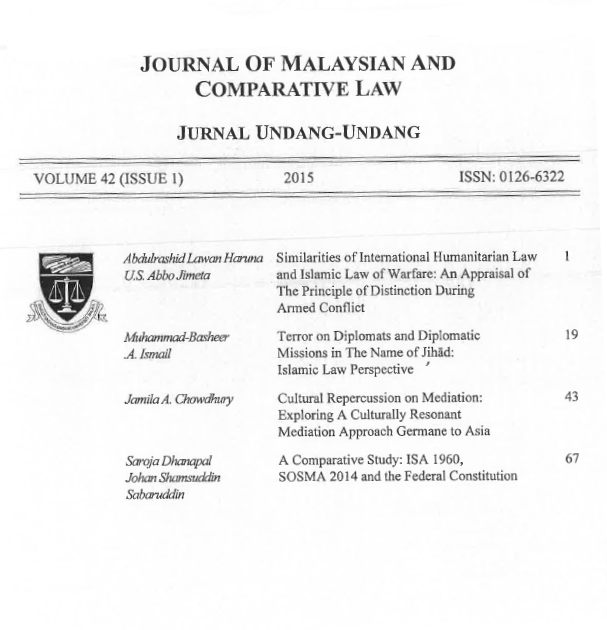Terror on Diplomats and Diplomatic Missions in The Name of JihÄd: Islamic Law Perspective
Keywords:
Terror, Diplomats, Diplomatic Mission, JihÄd, iSLAMIC, lAWAbstract
Terrorist attacks on diplomats and diplomatic facilities have been on the increase in recent years. It has often been argued that most of the terrorist attacks have been perpetrated by Muslims in the name of Islam. These attacks on diplomatic personnel and facilities have generally provoked some questions among international and Islamic law experts from which emanate the subject of discussion in this paper. This article intends to critically examine the following questions: what is the relationship between the concept of jihÄd and terrorism?; what is the legality or otherwise of non-State actors declaring jihÄd?; can diplomatic envoys and missions be subject of attack even during a lawfully declared jihÄd?; can the maiming or killing of unarmed civilians be justified based upon the principles of jihÄd?; does the dichotomisation of the world into dÄr al-harb (the abode of war) and dÄr al- IslÄm (the abode of Islam) have any relevance to the concept of jihÄd?; and what are the responses of Muslim States to these terrorist attacks and how do they treat such violation of the principles of international diplomatic law based on the criminal justice system of Islamic law? This article argues that even in a war situation, Islamic law dictates that diplomatic envoys and facilities must be safely protected. This article further argues that since the principles of jihÄd are fundamentally diametrical to the act of terrorism, it will, therefore, be erroneous to equate the jihÄd ideology with terror-violence.









